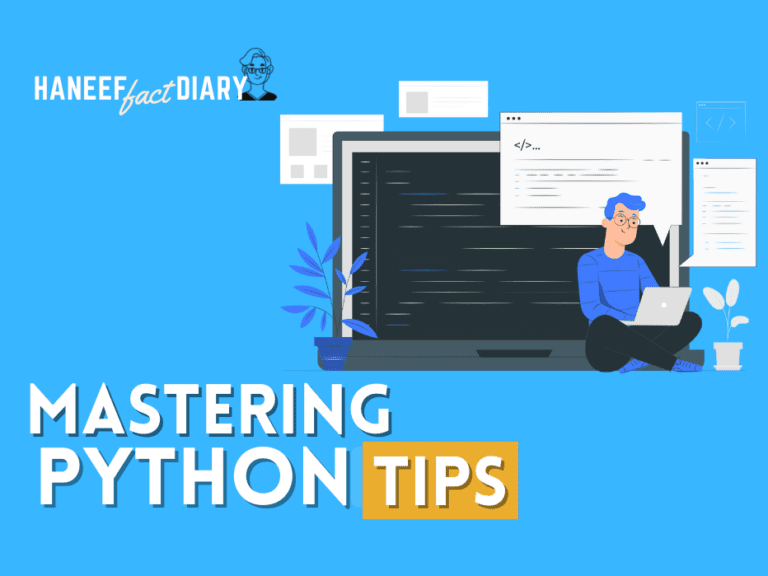10 Advanced Python Tips and Tricks for Experienced Developers
Introduction:
Advanced Python Tips As a Python developer, you’re always looking for ways to improve your skills and take your code to the next level. In this article, we’ll explore 10 advanced Python tips and tricks that can help you write more efficient, readable, and powerful code. Whether you’re a seasoned Python pro or just starting to feel comfortable with the language, these tips will help you become even more proficient.
Use List Comprehensions and Generator Expressions for Efficient Iteration
- List comprehensions: concise syntax for creating lists
- Generator expressions: efficient way to generate sequences without creating a full list in memory
Use the yield Keyword to Create Iterators
yield: keyword that allows you to create custom iteratorsyield from: syntax for delegating iteration to another iterable
Use the with Statement for Resource Management
withstatement: context manager for managing resources automatically- Custom context managers: create your own context managers using the
contextlibmodule
Use the functools and operator Modules for Functional Programming
functools: higher-order functions and decorators for functional programmingoperator: functions for working with Python’s built-in operators
Use Decorators to Modify Function Behavior
- Decorators: functions that modify the behavior of other functions
- Custom decorators: create your own decorators using functions or classes
Use the typing Module for Type Hints
- Type hints: optional annotations that can improve code readability and static analysis
typingmodule: standard library module for working with type hints
Use the collections Module for Enhanced Data Structures
Counter: dictionary subclass for counting occurrences of itemsdeque: double-ended queue with fast append and pop operationsnamedtuple: subclass of tuple with named fields
Use the enum Module for Custom Enumeration Types
enummodule: standard library module for creating custom enumeration types- Iterate over the values of an enumeration
- Use
valueandnameattributes to access the value and name of each enumeration member
Use the pathlib Module for Object-Oriented Path Manipulation
Pathobjects: manipulate file and directory paths in an object-oriented wayglobmethod: match file patternsresolvemethod: resolve symbolic links
Use the dataclasses Module for Enhanced Class Definitions
dataclassdecorator: add functionality to classes, such as default values and comparison methodsfieldfunction: specify class attributes with additional metadata
Conclusion:
These are just a few of the advanced Python tips and tricks that can help you write more efficient, readable, and powerful code. Whether you’re working with data, creating custom iterators and context managers, or using functional programming techniques, there’s always more to learn and discover in the Python language. Keep these tips in mind as you continue to develop your skills, and you



